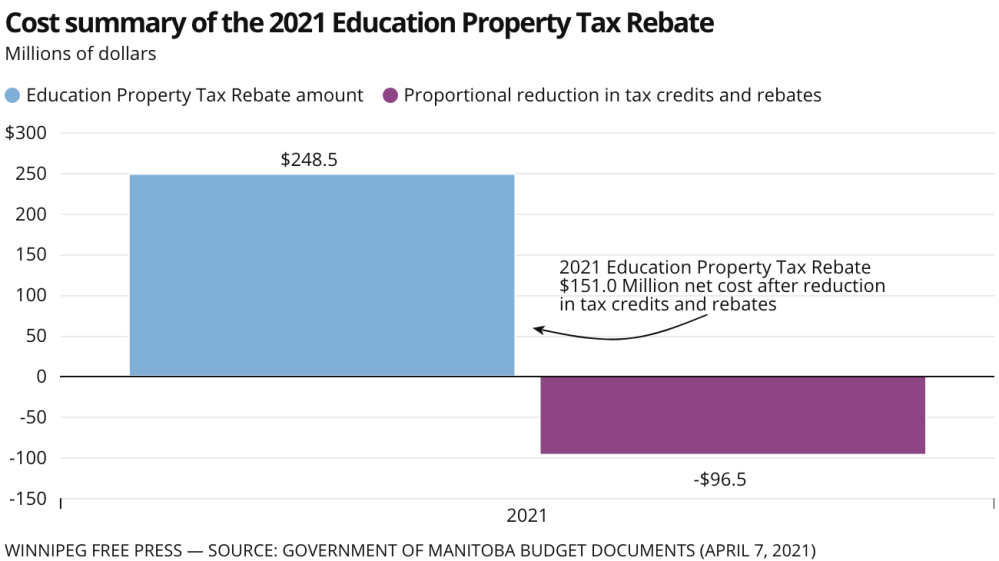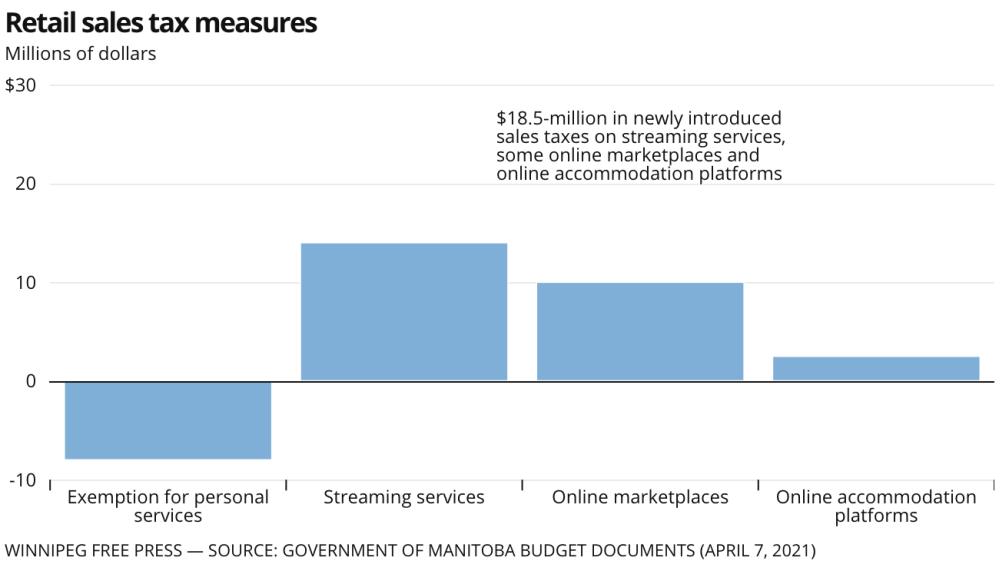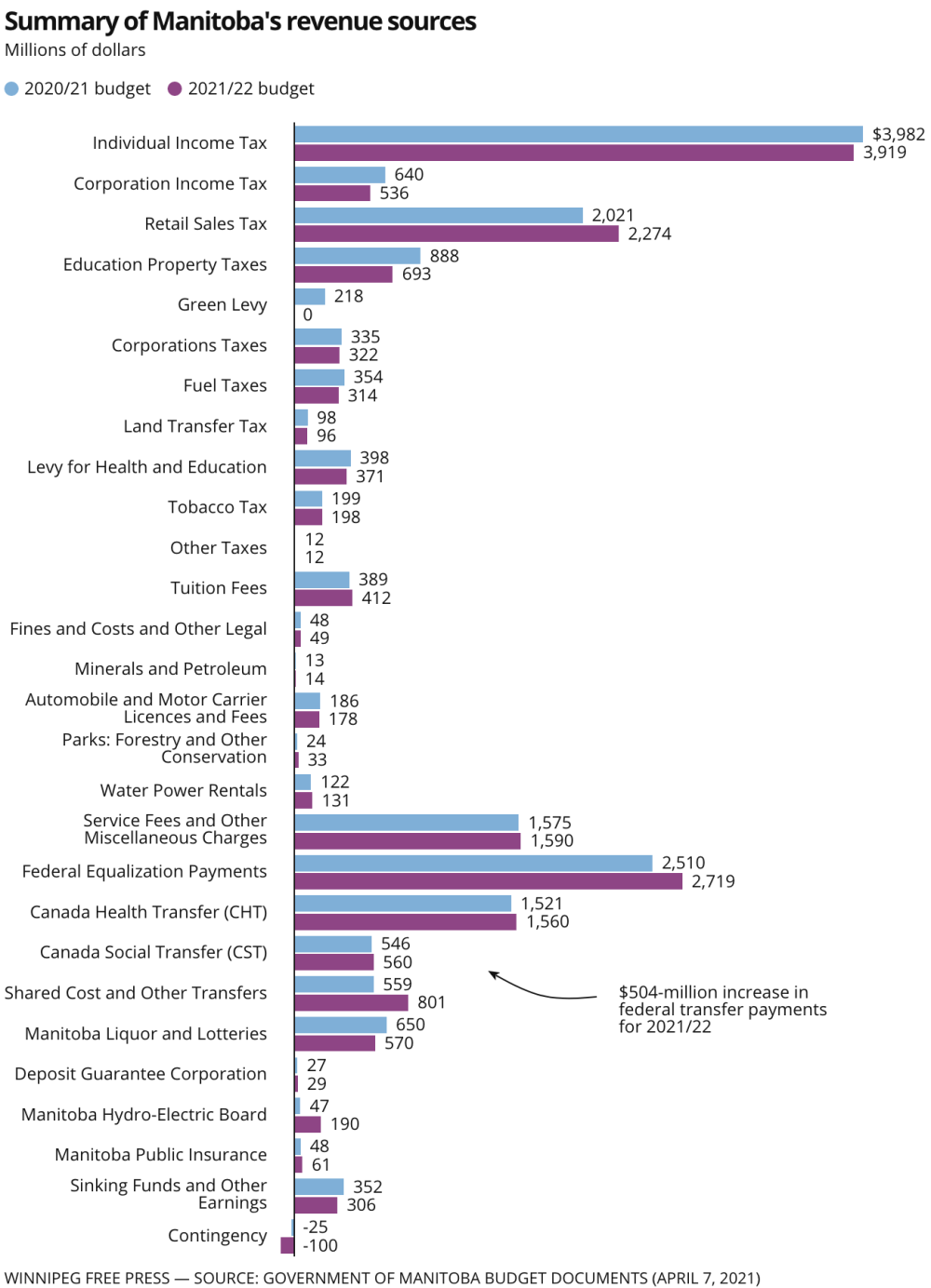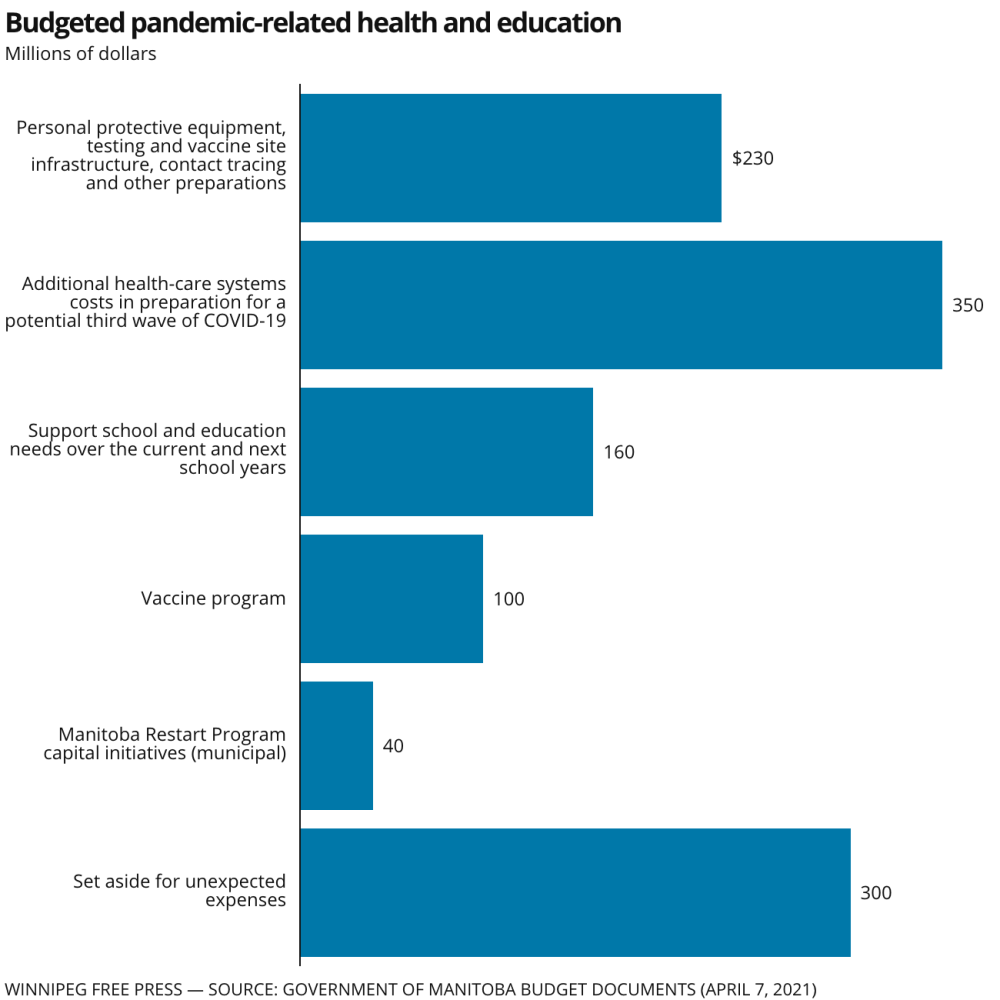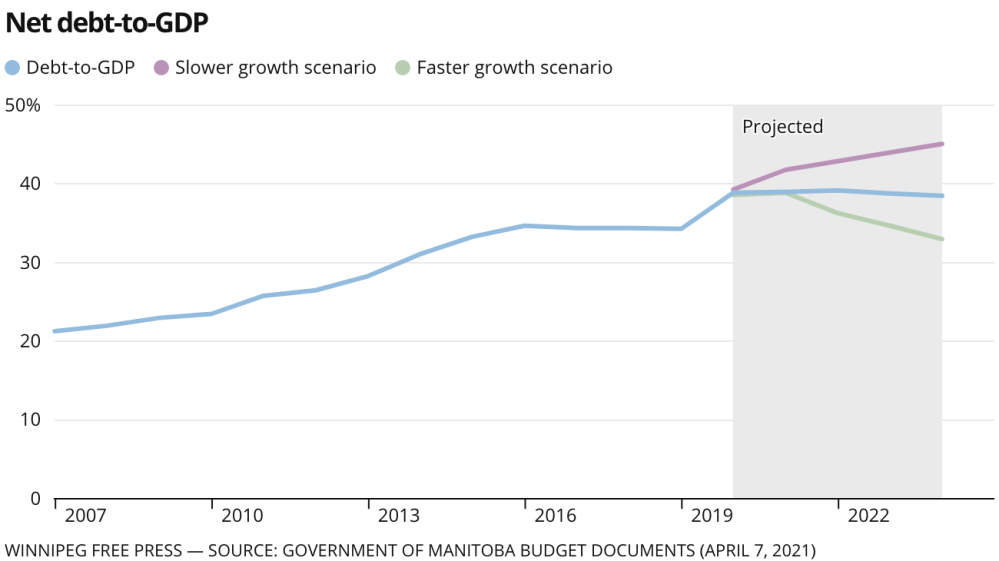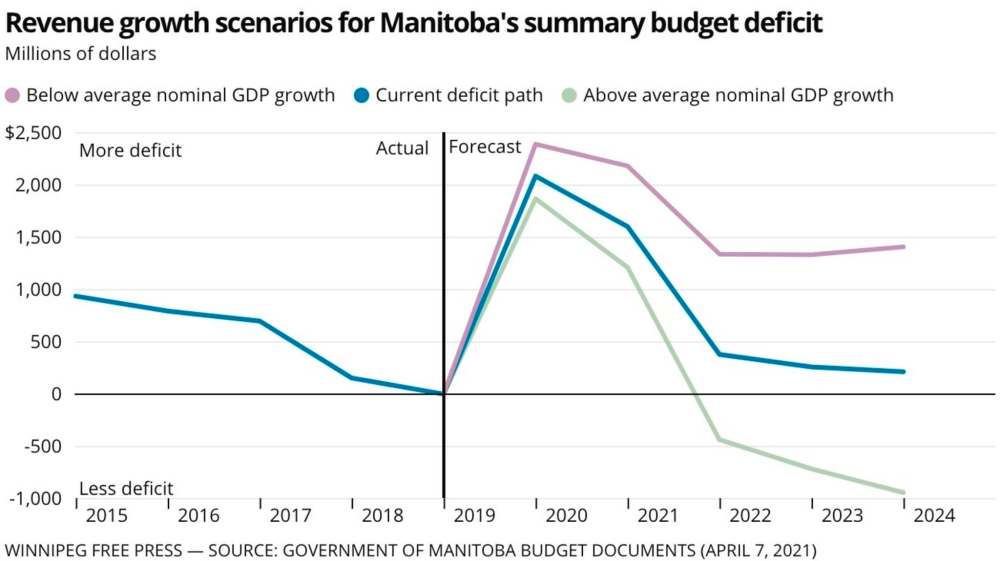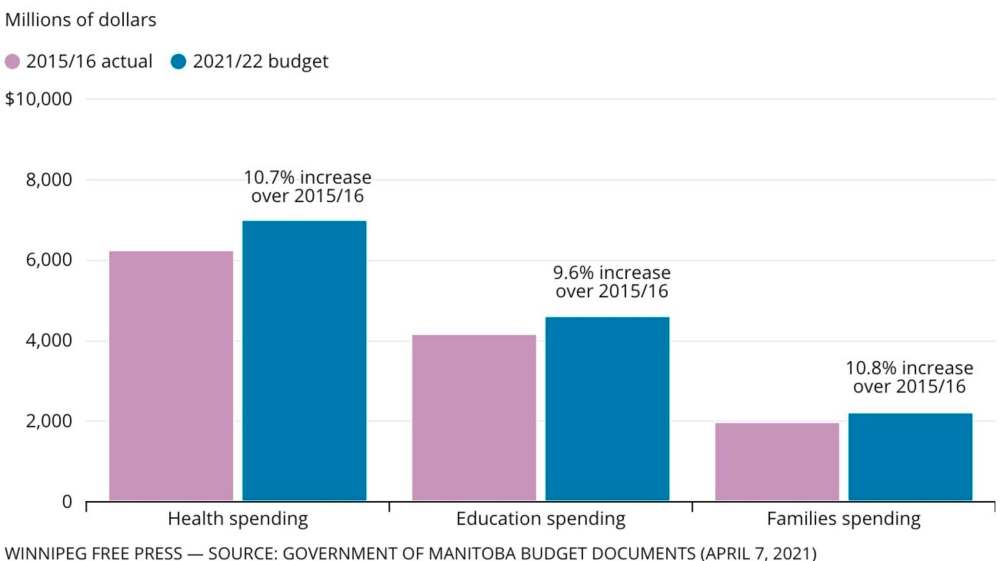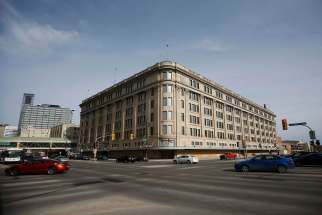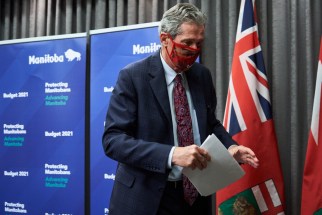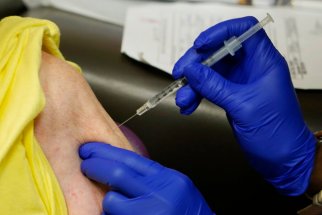A dozen highlights from Budget 2021
Read this article for free:
or
Already have an account? Log in here »
To continue reading, please subscribe:
Monthly Digital Subscription
$0 for the first 4 weeks*
- Enjoy unlimited reading on winnipegfreepress.com
- Read the E-Edition, our digital replica newspaper
- Access News Break, our award-winning app
- Play interactive puzzles
*No charge for 4 weeks then price increases to the regular rate of $19.00 plus GST every four weeks. Offer available to new and qualified returning subscribers only. Cancel any time.
Monthly Digital Subscription
$4.75/week*
- Enjoy unlimited reading on winnipegfreepress.com
- Read the E-Edition, our digital replica newspaper
- Access News Break, our award-winning app
- Play interactive puzzles
*Billed as $19 plus GST every four weeks. Cancel any time.
To continue reading, please subscribe:
Add Free Press access to your Brandon Sun subscription for only an additional
$1 for the first 4 weeks*
*Your next subscription payment will increase by $1.00 and you will be charged $16.99 plus GST for four weeks. After four weeks, your payment will increase to $23.99 plus GST every four weeks.
Read unlimited articles for free today:
or
Already have an account? Log in here »
Hey there, time traveller!
This article was published 07/04/2021 (1708 days ago), so information in it may no longer be current.
After a pandemic shook Canada’s economy, schools and health-care system to the core, the tax-slashing Pallister government has, as promised, left money on the kitchen table for some Manitobans.
It has done so with tax cuts, an overhaul of the education system and a half-billion dollars in relief from the federal government. While the province giveth, it has also taketh away. In December, the online services that kept Manitobans entertained throughout the COVID-19 restrictions and lockdown will be taxed by the province.
Here are a dozen things to know about Budget 2021:
1. Property owners to get a 25 per cent tax rebate
Approximately $248 million in education property tax rebates will be provided to 658,000 residential and farm property owners as the province phases out the education property tax. Property owners will automatically receive a 25 per cent rebate cheque on their education property taxes in the same month or sooner that municipal property taxes are due, followed by another 25 per cent rebate cheque issued in 2022.
2. What about renters?
To offset the 25 per cent education property tax rebate that benefits landlords, the province is freezing annual rent increases for 2022 and 2023. Landlords can still apply for an above-guideline increase if “material improvements” are made to a property.
3. Taxing streaming services, online shopping, accommodations
Starting Dec. 1, retail sales tax will apply to audio and video streaming services such as Netflix. The province will also require online marketplaces to collect and remit retail sales tax on the sale of taxable goods sold by third parties on their electronic platforms. Online accommodation platforms such as Airbnb will also be required to collect and remit sales tax on the booking of taxable accommodations starting Dec. 1.
4. Spend less to look better
The province is removing retail sales tax for personal services starting Dec. 1. That includes hair services, non-medical skin care, body modifications and spa services.
5. Sales tax revenue up, federal transfers way up
The province is expecting to collect $250 million more in retail sales tax revenue this year ($2.2 billion) than last year ($2 billion) as Manitoba recovers from the pandemic. The government is also expecting a whopping $504-million increase in federal transfers.
6. Pandemic drains provincial piggy bank
The province’s net income is expected to plummet by $600 million to $1.6 billion this year from $2.2 billion last year. Part of that is due to $1.2-billion budget for COVID-19 expenditures. Overall revenue is projected to increase to $17.84 billion from the forecast $17.48 billion. Expenditures are expected to rise to $18.2 billion from $17.9 billion in the last fiscal year.
7. More money for COVID-19 fight
The province has budgeted $1.2 billion for pandemic-related health and education costs:
● $230 million for personal protective equipment, testing and vaccine site infrastructure, contact tracing and other preparations as part of the province’s overall public-health response
● $350 million for additional health-care systems costs in preparation for a potential third wave of COVID-19
● $160 million to support school and education needs over the current and next school years
● $100 million for the vaccine program
● $40 million for Manitoba Restart Program capital initiatives at the municipal level.
● $300 million will be set aside for unexpected expenses.
8. Debt-to-GDP ratio increase
Prior to the pandemic, Manitoba’s debt-to-GDP was forecast to be 34.2 per cent. Due to COVID-19, the ratio is expected to be 38.8 per cent. The pandemic and resulting restrictions saw Manitoba’s GDP decline by 5.3 per cent last year — the worst downturn in modern history. A strong economic forecast is expected to result in a 4.1 per cent increase in real GDP in 2021 followed by 3.6 per cent growth in 2022.
This past year, capital spending on buildings in Manitoba increased by 13 per cent, exports to China rose by 81 per cent after trade battles the year before and, in manufacturing sales, Manitoba was first in the country at -3.2 per cent.
9. Vehicle owners get a break
Vehicle registration fees will be reduced by 10 per cent for renewals starting June 30, following a 10 per cent reduction last year. The reduction includes registration fees for non-commercial and passenger vehicles, trucks, trailers, motorcycles/mopeds and off-road vehicles.
10. Business owners get a break
The province is lowering payroll taxes for small businesses. The exemption threshold is being raised to $1.75 million of annual payroll from $1.5 million. The threshold below which employers pay a reduced rate is being raised to $3.5 million from $3 million. The small business venture capital tax credit is being increased to $500,000 maximum eligible investment to help businesses raise business growth equity.
11. Young diabetics get a break
Budget 2021 includes funding for glucose monitors for eligible Manitobans under the age of 25 with Type 1 diabetes. The province is increasing the age limit for the insulin pump program to 25 from 18.
12. Teachers get a break, sort of
A new refundable Teaching Expense Tax Credit allows K-12 teachers and child-care educators to claim a 15 per cent refund for up to $1,000 on eligible teaching supplies that are not reimbursed by their employers, to a maximum $150 rebate.

Our newsroom depends on a growing audience of readers to power our journalism. If you are not a paid reader, please consider becoming a subscriber.
Our newsroom depends on its audience of readers to power our journalism. Thank you for your support.
History
Updated on Wednesday, April 7, 2021 3:15 PM CDT: Updates lead image and reorders graphics

